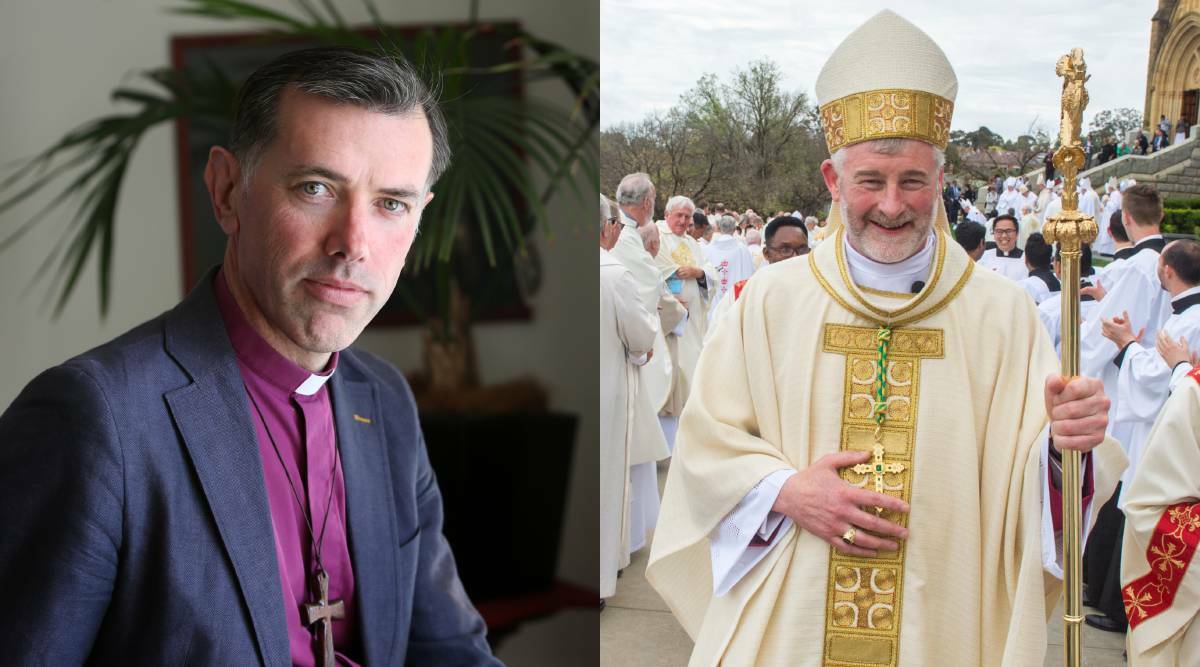
Victoria's proposed laws banning gay conversion therapy strike the right balance between protecting people from harm and respecting the rights to freedom of speech and freedom of religion, the state's Attorney-General says.
Subscribe now for unlimited access.
$0/
(min cost $0)
or signup to continue reading
It comes as faith leaders, who support the intent of the new laws, raise concerns that the way the ban is framed could have unintended effects on ordinary religious activity.
Bishop Shane Mackinlay, of the Catholic Diocese of Sandhurst, said the sort of legislation the state government was working on was needed.
"I support the intent of preventing coercive and intrusive attempts to interfere with people's free choice about themselves, their identity, their place in life, their place in society and their relationships," he said.
But he echoed concerns from within the Catholic Church that aspects of the draft laws could be interpreted as an attempt to regulate the private prayers of individuals or the preaching of church doctrines and the scriptures.
"The government is, in fairness, saying that's not their intention," Bishop Mackinlay said.
"I think what needs to happen is those assurances need to be written into the legislation about what is, and is not, intended."
Read more:
Bishop Matt Brain, of the Anglican Diocese of Bendigo, was mindful parliamentarians had a tough job in framing law.
"I would hope that as they debate this bill they will balance the need for respect and safety with processes that respect ordinary religious activity such as mutually agreeable prayer," he said.
"When we talk of sexuality we are talking of matters that go past the heart to identity.
"I expect that any of our parishes will provide a respectful and safe place for people to be as they seek to relate to God."
Story continues below draft laws
There are three key elements to the practices and conduct the Change or Suppression (Conversion) Practices Prohibition Bill 2020 - the draft law in question - is seeking to stamp out.
The acts in question would have to be targeted at a person, on the basis of that individual's sexual orientation or gender identity, and with the intention of changing or inducing that individual to change or suppress their sexual orientation or gender identity.
"A religious practice, including but not limited to, a prayer-based practice" could be considered a change or suppression practice if it was targeted toward an individual, on the basis of their sexual orientation or gender identity, and with the intent of changing or suppressing their sexual orientation or gender identity.
"A practice or conduct is not a change or suppression practice if it is supportive or affirms a person's gender identity or sexual orientation," the proposed law said.
For a criminal offence to be proven, it would need to be established beyond reasonable doubt there was either injury or severe injury, and that it was caused by a change or suppression practice.
Those found guilty of inflicting severe injury could face up to 10 years' jail, under the proposed laws.
Attorney-General Jill Hennessy said the government consulted closely with survivors, LGBTIQ+ organisations and religious organisations on the legislation to make sure it was effective in stamping out abhorrent change and suppression practices once and for all.
"These laws send a strong message that LGBT people are not 'broken' and they do not need to be 'fixed'," Ms Hennessy said.
The proposed laws are before the parliament.
Central Victorian LGBTIQ+ advocates welcomed the bill when it was introduced to parliament, and reiterated calls on the federal government to follow suit.


